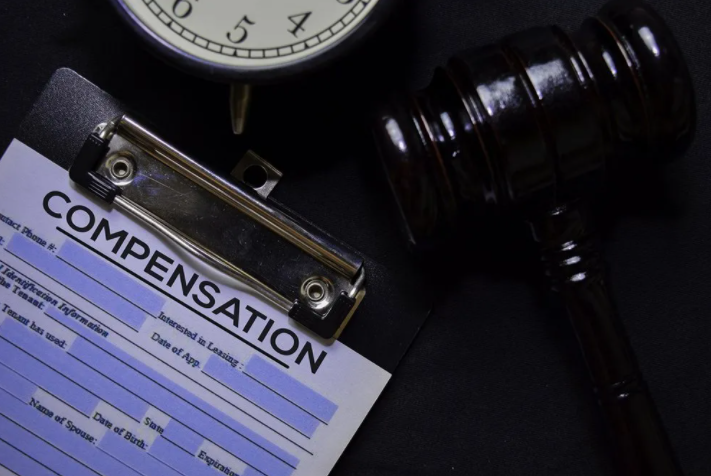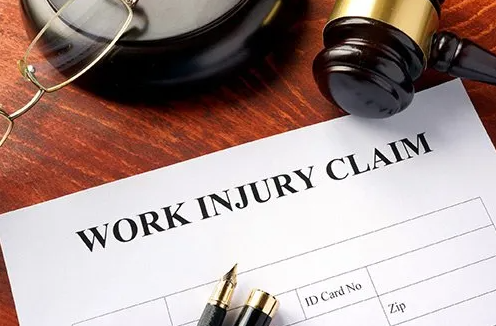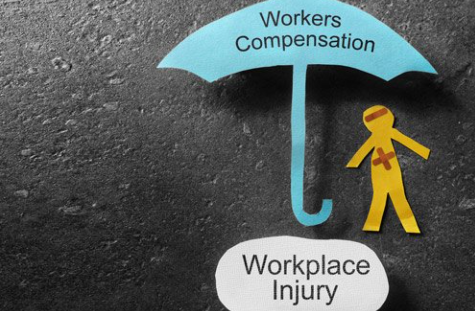Over 30 Years Representing Injured Workers
Blog Layout
5 LEGAL FACTS CONSTRUCTION WORKERS SHOULD KNOW
Admin • June 10, 2019

Construction can be extremely hard, physically demanding work. If you work in construction, you rely on your body to sustain your livelihood, but what happens if you get hurt? In most cases, if you get hurt on the job, you are entitled to make a workers' compensation claim against your employer.
To point you in the right direction, here are five facts every construction worker should know about the risks of this industry and your rights as a worker.
1. CONSTRUCTION IS ONE OF THE MOST DANGEROUS INDUSTRIES IN THE UNITED STATES
Throughout the nation, approximately one in five worker deaths occur in the construction industry. Together, people in transportation and material moving occupations as well as people in construction and extraction account for about 47% of all worker deaths every year. If you are in the construction industry, you should be aware of the risk of death or injury, and you should take steps to protect yourself.
2. HIGHWAY COLLISIONS CAUSE THE MOST DEATHS EVERY YEAR
The biggest risk to all workers is highway collisions. You face this risk if you are a truck driver or someone operating heavy machinery, but beyond that, if you are putting in a road or doing construction work near a road, you also have to contend with this risk.
Beyond collisions, the most common causes of death and accidents are the following activities:
- Falls
- Being struck by objects
- Electrocution
- Being caught in between or crushed by objects, equipment, or other materials
If you have been injured by any of these causes, you are not alone; you should contact an attorney to help you make a workers' compensation claim.
3. THE CONSTRUCTION INDUSTRY HAS MANY OSHA VIOLATIONS
If you feel your employer is not doing enough to protect you and the rest of the crew, you may want to reach out to someone from the Occupational Safety and Health Administration (OSHA). Unfortunately, although this industry is notorious for causing deaths and injuries, many construction companies don't keep up with occupational safety rules.
The most common safety violations include lack of fall protection, failures to communicate about hazards, deficiencies with scaffolding, failure to provide or mandate respiratory equipment for workers, and not controlling hazardous materials by locking out workers or tagging materials.
Additionally, violations are found with the use of ladders, powered trucks, machine guarding, and lack of eye or face protection. Even poor training can constitute safety violations, especially if construction companies don't train their workers how to safely use fall arrest equipment.
When you are injured on the job, you have the right to bring forward a workers' compensation claim. In exchange for your coverage under the workers' comp policy, you essentially agree not to bring a personal injury lawsuit against your employer. In cases where your employer was willfully negligent by violating OSHA standards, you may be still able to bring forward a personal injury suit. A lawyer can help you understand the options in your situation.
4. RULES FOR INDEPENDENT CONTRACTORS ARE DIFFERENT IN CALIFORNIA
Typically, workers' comp policies only apply to employees. They don't apply to independent contractors. However, even if the company paying you has you classified as an independent contractor, you may still qualify for a workers comp claim.
The state of California has different rules around independent contractors than the Internal Revenue Service (IRS). Under California's rule, the work provided by an independent contractor must be out of the scope of the business's normal course of business.
For instance, a dental clinic can't consider a dentist to be an independent contractor because that is the business's usual scope of work. In that same vein, if a roofing company hires you to do roofing work, you may not be able to be considered an independent contractor because the work you're performing is what that company normally does.
In situations where you are unsure, you should never take the word of the company owner or its head of human resources. Rather, you should consult with a workers' comp attorney who can help you figure out your rights.
5. YOU MAY BE ABLE TO PURSUE A PERSONAL INJURY CASE IN ADDITION TO WORKERS' COMP
In some situations, you may be able to bring two cases forward. For instance, if you are hurt on the job, you may be entitled to workers' compensation. However, if your injury was caused due to malfunctioning equipment, you may also be able to bring a suit against the manufacturer of the equipment.
You deserve compensation and coverage for your medical bills after a workplace accident. Unfortunately, however, handing a workers' comp case on your own can be hard. To get help, contact us
at The Law Offices of Jeffrey M. Greenberg today.
By Admin
•
April 28, 2020
If you suffer an injury at work, you should report the injury to your employer as soon as possible. Learn why the timing is important.
By Admin
•
March 5, 2020
Construction injuries can often be serious. Learn about three ways construction workers can reduce their chances of injury on the job.
By Admin
•
November 4, 2019
If you are injured at work, you should be aware of work capacity after a work-related injury so you can prepare yourself. Learn more.
THE LAW OFFICES OF JEFFREY M. GREENBERG
IN BUSINESS SINCE 1992
SE HABLA ESPAÑOL
Phone:
Address:
825 Van Ness Ave., Suite 601
San Francisco, CA 94109
Content, including images, displayed on this website is protected by copyright laws. Downloading, republication, retransmission or reproduction of content on this website is strictly prohibited. Terms of Use
| Privacy Policy






